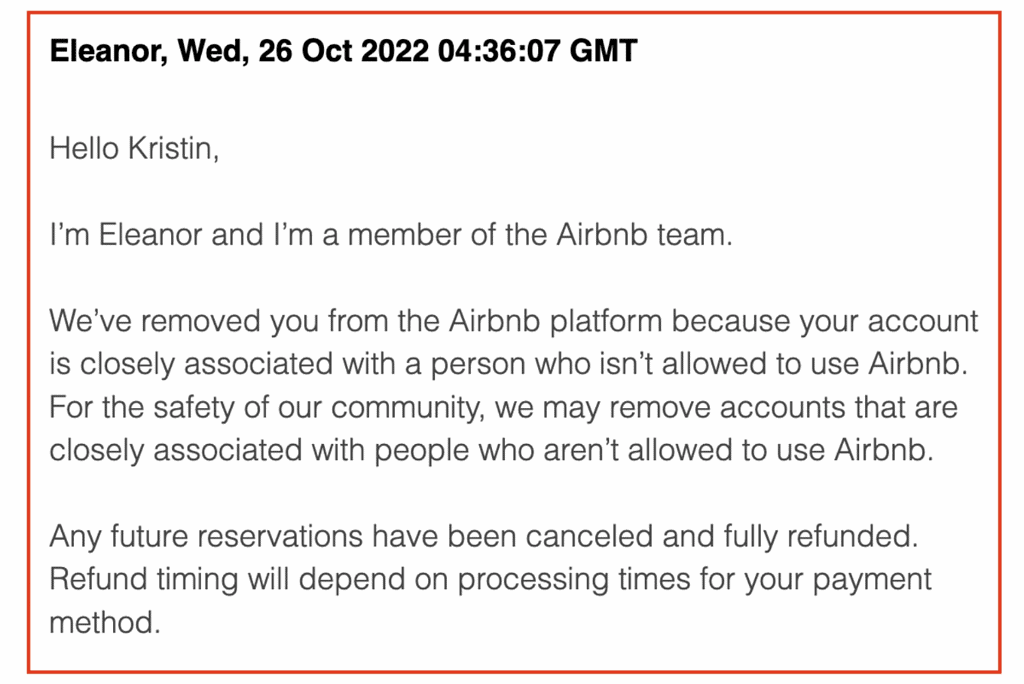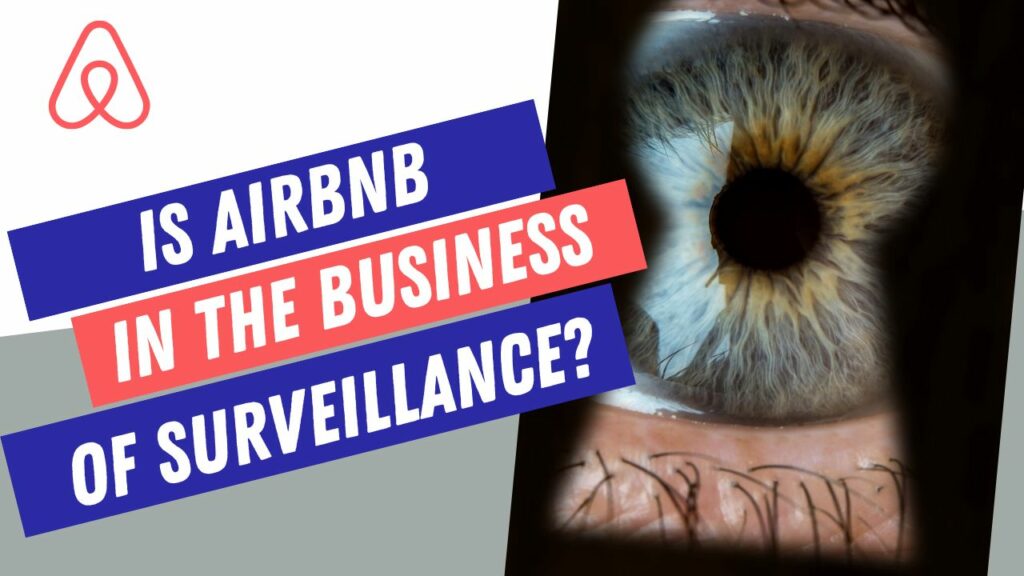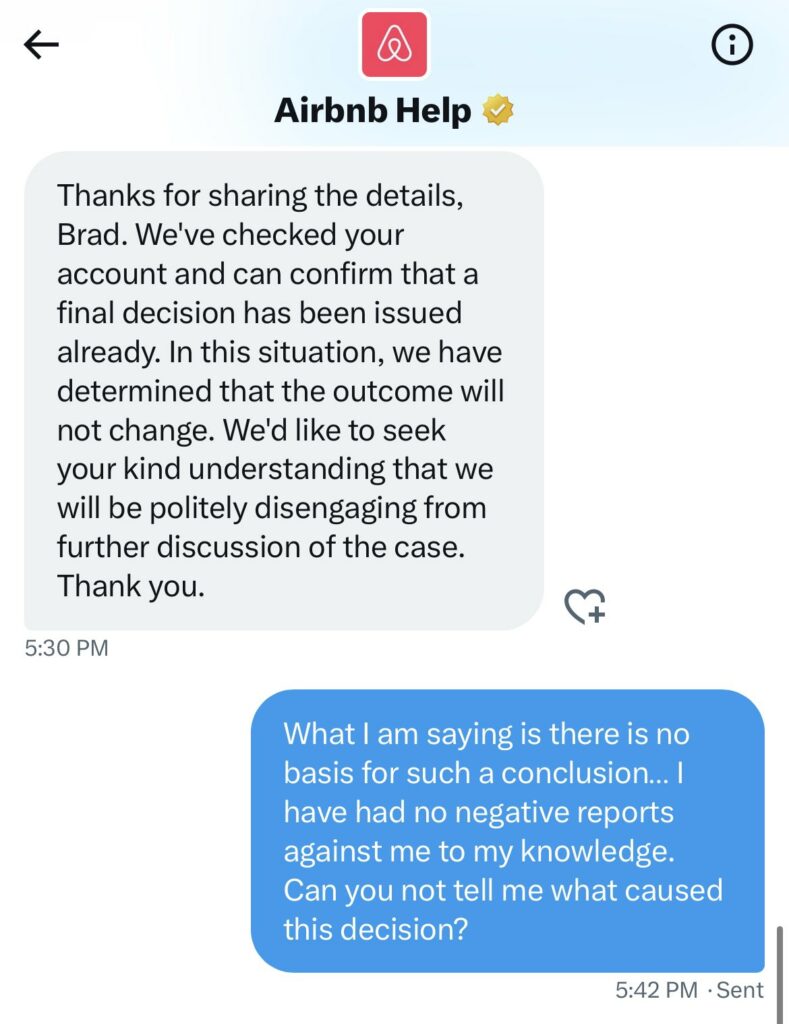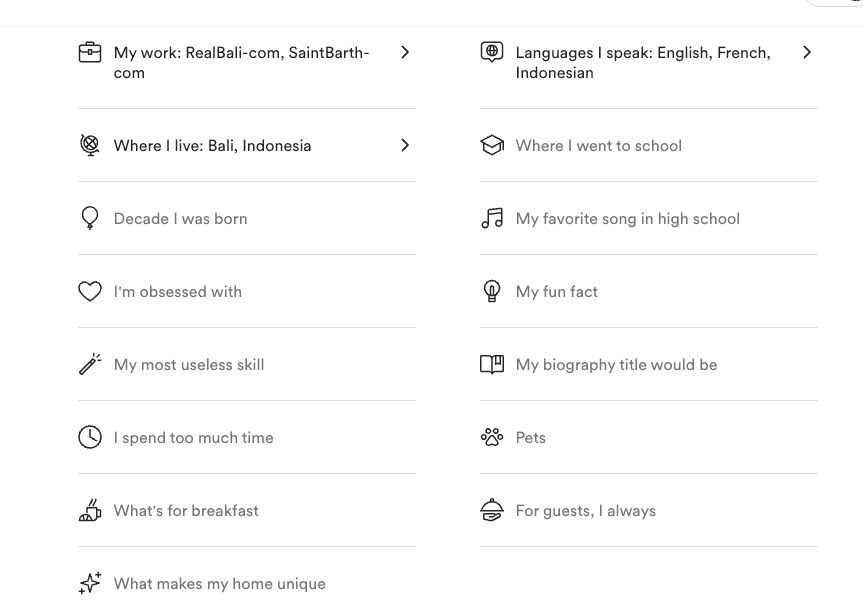The story of Kristin Turner, a diligent Airbnb host, paints a vivid picture of an emerging issue within Airbnb’s policies that’s causing considerable concern – the predicament of guilt by association. Despite her reliable and sterling host reputation, she received an email notification indicating her ban from the platform due to her indirect association with a person bearing a criminal record.
The chain of events leading to Turner’s ban originated from an act of goodwill – she sought to help her mother’s partner find a temporary place to stay, inadvertently creating an Airbnb account under his name. Turner was unaware of her mother’s partner’s previous non-violent offenses. The fallout for Turner was dramatic: her existing bookings were canceled in the wake of the ban, triggering financial hardships and mortgage repayment struggles.

Airbnb stakes its reputation on fostering trust among its community. But is the company now in the business of surveillance, with processes reminiscent of the ‘Minority Report’. From deep-diving background checks that probe the histories of prospective guests to sophisticated algorithms predicting potential misconduct, the company’s approach has raised some eyebrows.
Adding’s latest initiative involves banning users closely linked with those already barred from the platform, sparking discussions about guilt by association. As Airbnb launches its ‘Host Passport’, it’s requesting an increased amount of personal data from hosts. This move invites a necessary dialogue about the boundaries a private company should observe when collecting personal data and conducting thorough background checks.
The purpose of this article isn’t to instill panic but to offer a thoughtful intermission. It encourages us to reevaluate how far we should permit giant private entities such as Facebook, Airbnb, or Google to penetrate personal privacy barriers in the name of increased security, enhanced marketing strategies, and profit maximization.
Why Airbnb is in the Business of Trust
In the sharing economy, platforms like Airbnb need to balance the concerns of both hosts and guests. As reiterated over the years by Airbnb’s CEO Brian Chesky, Airbnb is “in the business of trust”. Owners renting their homes fear damage or misuse of their property, while guests staying in a host’s house may be anxious about personal safety. To tackle these legitimate concerns, Airbnb has added several layers of safety measures over the years, such as
- Mutual review system: Both hosts and guests can review each other after a stay.
- Anti-Party Technology: This algorithmic tool helps prevent risky bookings that could lead to unruly parties.
- Background Checks: Airbnb bans hosts and guests based on background checks.
- Guilt by Association: Users linked to someone deemed unsafe can also be banned.
- Airbnb Host Passport: A new feature that collects additional data from hosts who welcome guests into private bedrooms in their homes.
Recent Cases of Guilt by Association
Other recent cases have brought Airbnb’s guilt-by-association policy to light. Several users have received the dreaded email about their account being banned because they are “closely associated with a person who isn’t allowed to use Airbnb”, without knowing who or what is wring. Also, appealing decisions has proven very hard, especially as Airbnb outsources the service to third parties.
Bethany Hallam, now an elected official campaigning against drug use and transparent about her own past struggles, was surprised when her Airbnb reservation was abruptly canceled and her account banned due to a previous criminal conviction discovered through a background check. She had successfully used Airbnb for years without any issues. After sharing her experience on social media, Hallam discovered that others had faced a similar ban.
Airbnb faced backlash after mistakenly banning the parents of controversial YouTuber Lauren Southern from using its service. Southern, known for her far-right views, criticized Airbnb on social media when her parents were informed that they were barred from booking a property due to their association with her. Airbnb admitted the error and reversed the ban, issuing an apology to Southern’s parents.
Airbnb’s Approach to Background Checks
Airbnb provides a marketplace for hosts to rent out their properties and guests to book them. The company recognizes the importance of fostering a secure and reliable environment. To this end, Airbnb conducts background checks on both hosts and guests as a part of its safety measures.
The background check process begins when a host or guest creates an account on the platform. As a part of the onboarding procedure, Airbnb requests information like full name, date of birth, and government-issued identification. This data is then processed by third-party companies, such as Inflection, that specialize in background checks.
These background checks help verify the identities of the individuals on the platform and cross-reference them with public records and databases. They may include criminal record checks, sex offender registry checks, and, in some instances, even checks against global and regional sanctions lists.
Growing Acceptance of Background Checks in the US
In the United States, the acceptance and usage of background checks have increased significantly over the years, primarily post-9/11. Businesses, employers, and landlords commonly use these checks to mitigate risk and ensure the safety and reliability of their employees, tenants, or, in Airbnb’s case, users. These checks have essentially become a norm in many sectors, with around 90% of employers and 80% of landlords reportedly conducting background checks.
The European Context and GDPR
In contrast, the European Union has stricter regulations regarding data privacy and personal information. The General Data Protection Regulation (GDPR) mandates that businesses must have a valid reason to process personal data, and users have a right to know what data is being collected and how it is used. Furthermore, businesses must ensure that the processing of this data is necessary and proportional to the reason for which it was collected. While background checks are still conducted in Europe, they are subject to these and other stringent requirements.
Concerns Regarding Third-Party Background Check Providers
Despite their vital role, third-party companies that conduct these background checks are not flawless. There have been instances of false reports, often due to inaccuracies in the databases they use, mistaken identities, procedural errors, or technological glitches. These inaccurate reports can unfairly bar users from Airbnb’s platform or allow individuals with concerning histories to use the platform unchecked.
Further complicating the matter is the difficulty of appealing these false reports. In many instances, the appeals process can be cumbersome, opaque, and frustratingly slow, with some affected individuals resorting to media attention to expedite resolution.
The Notion of Pre-Crime: Airbnb meets Minority Report
The idea of pre-crime has captivated the imagination of many through science fiction works, with notable influence from renowned author Philip K. Dick. Most notably depicted in the popular film “Minority Report,” Dick’s exploration of pre-crime systems and their ethical implications has sparked discussions about the intersection of technology and crime prevention. As advanced technologies and surveillance measures become increasingly prevalent in our society, the concept of pre-crime is transitioning from the realm of fiction to reality.
Anti-Party Technology: Predicting and Preventing Disruptive Incidents
One significant example of pre-crime measures can be seen in Airbnb’s Anti-Party Technology. Designed to identify potential party houses and prevent disruptive incidents, this system relies on AI algorithms and data analysis to anticipate and intervene before parties and unruly behavior can occur.
By analyzing various factors such as guest behavior patterns, booking history, and reviews, the Anti-Party Technology aims to predict and flag listings that have a higher likelihood of hosting disruptive gatherings. Through these pre-emptive measures, Airbnb aims to maintain a peaceful and enjoyable experience for both hosts and their neighbors.
The Issue of Redemption and Mistakes
One significant concern within the concept of pre-crime is the lack of consideration for redemption and the potential for mistakes or manipulation. In “Minority Report” and other works by Philip K. Dick, individuals are held accountable for crimes they haven’t committed, disregarding the possibility of personal growth and change.
Similarly, Airbnb’s pre-crime measures, such as background checks provided by Inflection, may overlook the potential for transformation and make errors in assessing individuals based on their past. It is crucial to address the issue of redemption, recognizing that people can evolve and learn from past mistakes.
The issue is not background checks, but the need for incorporating human judgment and mechanisms for individuals to present their cases and appeal decisions can help rectify errors or misjudgments that may occur in automated pre-crime measures.
Guilt by Association
Guilt by association is a moral dilemma that arises when individuals are held accountable or face consequences based on their association with others who are deemed unsafe or undesirable. Within the context of Airbnb, the implementation of policies that ban users associated with individuals flagged as problematic raises concerns about fairness and unintended consequences.
Understanding Guilt by Association:
Guilt by association refers to the notion of attributing guilt or negative judgment to an individual based on their connections with others. It disregards individual agency and treats individuals as responsible for the actions or affiliations of those with whom they are associated. While there may be situations where association can provide valuable insights into an individual’s character, the blanket application of guilt by association can lead to unfair and unjust outcomes.
Airbnb’s Approach: Punishing Individuals for Others’ Actions?
Airbnb’s policies, aimed at promoting safety and security within their platform, include measures such as banning users associated with individuals deemed unsafe. While the intention behind such policies may be to protect users, they also raise concerns about fairness and accountability.
Once again, this technology had advantages: For instance, it helps detects prostitution rings that booked airbnbs under diverse false names.
Yet, by punishing individuals based on their associations, Airbnb is potentially penalizing innocent users for the actions of others. This approach disregards individual circumstances, potential for redemption, and the complexity of human relationships.
The Airbnb Host Passport: A Data Collection Tool
Airbnb’s Host Passport feature aims to foster stronger connections between hosts and guests by encouraging hosts to share personal information. However, this extensive information exchange raises privacy concerns regarding the depth and scope of data shared.
Introducing the Airbnb Host Passport: Fostering Connection
The Host Passport feature serves as a window into the lives of hosts, offering guests a glimpse into their personalities and experiences. It is designed to create a sense of familiarity and build trust between hosts and guests.
Range of Information Collected: From Basic to Personal
Hosts are prompted to share a wide range of information, starting from basic details such as their name, Superhost status, and guest reviews. However, Airbnb goes beyond these basics and encourages hosts to provide additional personal information such as their work history, educational background, and past travel experiences.
Privacy Implications: Balancing Transparency and Data Profiling
While transparency is important in the sharing economy, there are concerns about the potential risks associated with sharing such extensive personal information. The collection and aggregation of diverse data points can result in comprehensive host profiles, raising questions about data privacy and potential misuse.
Educating Hosts: Awareness and Control Over Shared Information
It is crucial for hosts to be aware of the extent of information they are sharing and the potential privacy implications. Hosts should have control over the details they choose to disclose and should be provided with clear guidance and options to manage their shared information effectively.
The Limits of Corporate Surveillance
The breadth of information Airbnb collects and the way it uses that data to predict police behavior opens a broader debate about corporate surveillance. While tools like background checks can help ensure safety, their fallibility and the potential for misuse are concerning. Critics argue that allowing private companies to act as a ‘Minority Report’-like police force, predicting and punishing crime before it happens, is a slippery slope.
Drawing parallels to China’s social credit system, which has faced criticism for its impact on travel restrictions based on low scores, raises thought-provoking questions. While private companies like Airbnb are not subject to the same level of scrutiny, they, too have the power to prevent certain individuals from traveling based on their own systems and algorithms. The lack of transparency and potential for unfairness in both cases warrant critical examination.
In conclusion, as Airbnb increasingly adopts these surveillance measures, it’s crucial to question the ethical implications and potential overreach. As property owners and managers, we care for our safety and the preservation of our private homes. Are we comfortable with a travel company having such extensive personal information and the ability to limit people’s travel opportunities? These parallel discussions between corporate surveillance and social credit systems prompt us to consider the broader implications of allowing private entities such control and influence over individuals’ lives.










![Trump-Era Policies Fuel Travel Uncertainty: Fewer Canadians, Europeans to U.S.—Fewer Americans to Europe [Early Data]](https://www.rentalscaleup.com/wp-content/uploads/2025/04/Trump-Era-Policies-Fuel-Travel-Uncertainty-Fewer-Canadians-Europeans-to-U.S.—Fewer-Americans-to-Europe-Early-Data-150x150.jpg)
